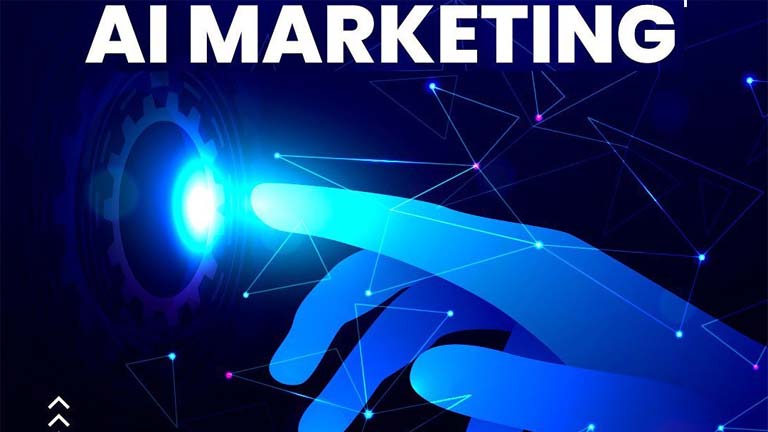
As we move further into the 21st century, it’s becoming increasingly clear that digital marketing is not going anywhere.
In fact, with the continually growing importance of the internet and digital devices in our everyday lives, it’s only going to become more central to the way businesses operate. As a result, those who want to stay ahead of the curve need to learn digital marketing.
The good news is that it’s never been easier to get started with digital marketing. There are many resources, from books and articles to online courses and boot camps. And, as the field continues to evolve, there are sure to be even more created in the future.
So, if you’re interested in learning digital marketing, where should you start?
Here are a few skills to get you started.
1. Content Marketing
A strategic technique to marketing that focuses on developing and distributing consistent, useful, and appropriate content material and then attracting and retaining a precisely-defined audience – and, ultimately, driving customer’s action is defined as content marketing.
Content marketing aims to attract and retain customers by consistently creating and curating relevant and valuable content to change or improve customer behaviour.
It’s a continuous process best blended into your comprehensive marketing strategy.
Content marketing requires a strategic approach and always starts with a plan. Once you know your goals, you can develop a content strategy that includes:
- Research
- Objectives
- Target audience
- Channels
- Tone and style
- Frequency
- Budget
- Resources
- Metrics
- Promotion
Your content strategy plan will help you map out a clear path for your content marketing efforts, ensure that everyone on your team is on the same page, and keep you accountable for your goals.
2. Search Engine Optimization
Search engine optimization is about making your website more visible in search engines. Optimize your website’s content, structure, and on-page elements like titles, metatags, and anchor text.
But if you’re patient and willing to put in the work, you can improve your website’s ranking in search engines and eventually attract more traffic.
3. PPC
Pay-per-click advertising is a way of using the advertising space on search engines to your advantage. With PPC, you only pay when someone clicks on your ad, making it a cost-effective way to generate leads and sales.
PPC can be a complex and time-consuming process, but it doesn’t have to be. With the right skills and knowledge, you can set up and manage a successful PPC campaign to help you achieve your business goals.
For example, let’s say you want to increase leads for your business. You could create a PPC campaign to generate more leads from your target audience.
You need to identify the right keywords to target, create ad copy that resonates with your audience, and set up a landing page that converts visitors into leads.
4. Social Media Marketing
As the name suggests, social media marketing is all about using social media platforms like Facebook, Twitter, and LinkedIn to promote your business, create and share content, run ads, and engage with your audience.
There are a few skills that you need to master to be successful at social media marketing.
It would help if you were good at creating quality content. This includes both written and visual content. Your content needs to be interesting, informative, and engaging and should also be tailored to your target audience.
For example, you should use a different tone and approach than targeting Baby Boomers if you’re targeting millennials.
It would help if you also were good at running ads. Know how to target your audience, set up budgets, and monitor your results.
Finally, it would help if you were good at engaging with your audience. Start responding to comments and questions, interacting with influencers, and running contests and giveaways.
If you can master these skills, you’ll be successful with social media marketing.
5. Email Marketing
Email marketing involves sending promotional messages to potential and existing customers.
It can also help you build relationships with potential customers, leading to more sales.
6. Analytics
Analytics is the process of understanding and using data to improve your marketing efforts. Analytics involves setting up Google Analytics to track website traffic using A/B testing to understand what type of content performs best with your audience.
No matter what level you’re starting from, there are always ways to improve your analytical skills.
Here are a few suggestions:
1. Get to know your data.
Please spend some time exploring your data sources and getting familiar with the information they contain.
In this way, you will understand better what type of data is most useful for your needs and how to interpret it.
2. Set up tracking.
If you don’t already have a system for tracking your marketing data, now is the time to set one up. Google Analytics is a good option for many businesses, but other options are available.
Whichever system you choose, be sure to set up tracking for all of your marketing channels so you can get a complete picture of your marketing efforts.
3. Conduct A/B testing.
A/B testing is an effective form to compare two performances of something (like a website landing page) to see which one acts better.
This type of testing can help you fine-tune your marketing efforts and ensure that you’re getting the most out of your campaigns.
4. Use data to improve your campaigns.
Once you’ve collected some data, put it to good use! Use what you’ve learned to improve your marketing campaigns and make more informed decisions about allocating your resources.
These are just a few of the many skills you’ll need to learn to succeed in digital marketing. So get started today, and you’ll be well on your way to a bright future in this exciting field.
The Benefits of Learning Digital Marketing
Digital marketing is one of the most in-demand skills in today’s job market. As more and more businesses move their advertising and marketing efforts online, they need professionals who are well-versed in digital marketing strategies. and tools.
If you’re considering a career in digital marketing or already working in the field, there are many benefits to continuing your education and learning more about this dynamic industry. You can also get some employment opportunities at a digital marketing agency.
Here are just a few of the reasons why it pays to keep learning digital marketing:
1. You’ll Stay Ahead of the Curve
The digital landscape is always changing, and new technologies and platforms are constantly emerging. To be successful in digital marketing, you need to be able to keep up with the latest industry trends and changes.
By continuing your education, you’ll stay ahead of the curve and be at the forefront of the latest digital marketing developments.
2. You’ll deepen your knowledge and expertise
The more you learn about digital marketing, the more expert you will become in the field.
As you deepen your knowledge, you’ll be better equipped to develop successful marketing campaigns, determine which strategies are most effective, and troubleshoot any problems.
3. You’ll make yourself more marketable
If you’re looking for a job in digital marketing or hoping to advance your career, continuing your education is a great way to make yourself more marketable to potential employers.
In today’s competitive job market, employers are looking for candidates with a strong understanding of digital marketing concepts and tools. By learning more about digital marketing, you’ll be able to show employers that you have the skills and knowledge they are looking for.
4. You’ll gain a competitive edge
The more knowledgeable and expert you are, the better equipped you will be to succeed in any field.
In digital marketing, this is especially true – because the industry is always changing, those who can adapt and change will have a definite competitive advantage.
5. You’ll be prepared for future changes
Even if you think you know everything there is to know about digital marketing, there will be new developments in the field that you’re not familiar with.
By continuing your education, you’ll be prepared for any future changes and better equipped to handle whatever comes your way.
Conclusion
These are just a few reasons it pays to keep learning digital marketing. Whether you’re just getting started in the field or working in digital marketing for years, there are always new things to know.
So if you want to stay ahead of the curve, deepen your knowledge, and give yourself a competitive edge, make sure to keep learning digital marketing.
Thanks for reading!




